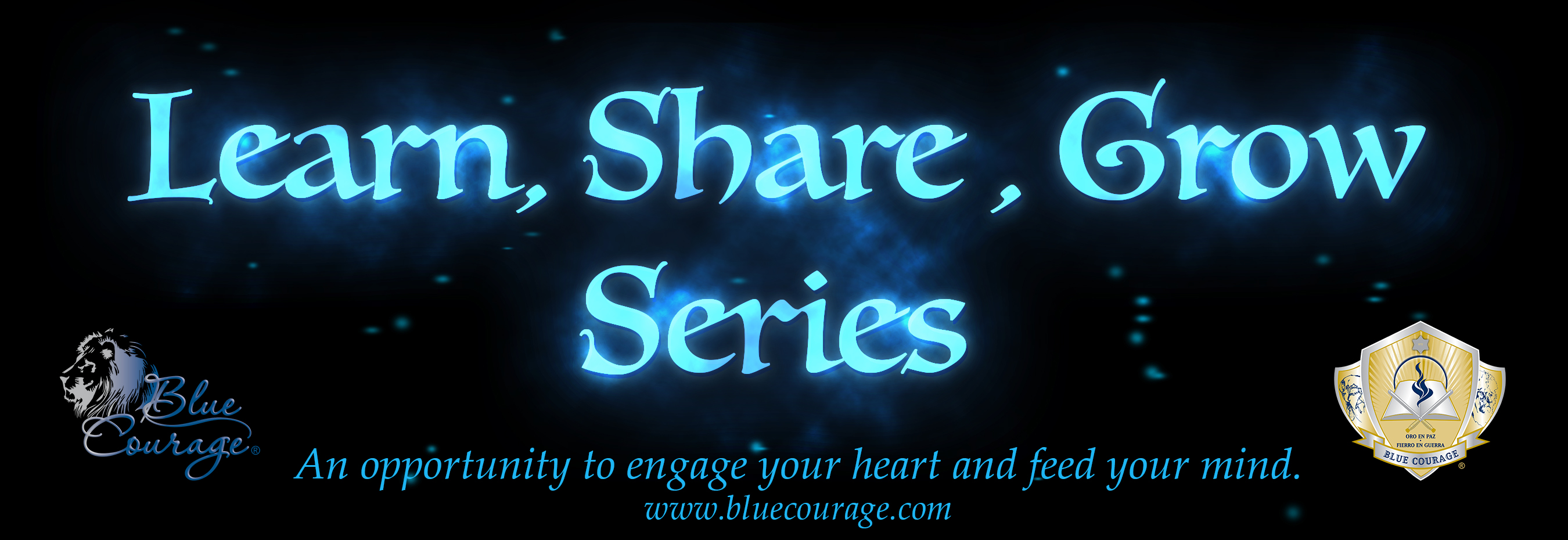Learn, Share, Grow - Stay Grounded in Stressful Moments

May 24, 2021
Below is a lesson from Harvard Business Review on ways to stay grounded in stressful moments, as well as our key learnings.
The Blue Courage team is dedicated to continual learning and growth. We have adopted a concept from Simon Sinek’s Start With Why team called “Learn, Share, Grow”. We are constantly finding great articles, videos, and readings that have so much learning. As we learn new and great things, this new knowledge should be shared for everyone to then grow from.
A Simple Way to Stay Grounded in Stressful Moments
by Leah Weiss
Mindfulness should be as much a physical practice as it is a mental one. Given its name, you might think mindfulness is something you do only with your mind. In fact, lots of research, including my own, has shown that paying attention to our bodies is often an easy way into mindfulness and helps us reduce stress while it’s happening.
This may seem counterintuitive because when our mind is overwhelmed, our body is often the last thing we’re thinking about. If we notice our bodies at all in moments of stress, most likely it is as they interrupt: carpal tunnel syndrome, back pain, breast pumping, teeth-cleaning appointments, sore feet, sick days, or simply the routine hunger that forces us to stop what we’re doing multiple times a day and eat. Yet if we focus our attention on our bodies, they can be our anchor in what’s happening right now, even if the sensations are unpleasant.
This is how anchoring works: We bring our attention into our bodies, noticing — rather than avoiding — the tension, circulation, pain, pleasure, or just neutral physical experience of, say, our right shoulder or the arch of our left foot. This practice helps us snap back to reality. In fact, our bodies are the quickest, surest way back to the present moment when our minds are lost in rehashing the past or rehearsing the future.
Continue reading here.
Key Learnings:
- If we focus our attention on our bodies, they can be our anchor in what’s happening right now, even if the sensations are unpleasant.
- We bring our attention into our bodies, noticing — rather than avoiding — the tension, circulation, pain, pleasure, or just neutral physical experience. This practice helps us snap back to reality.
- Our bodies are the quickest, surest way back to the present moment when our minds are lost in rehashing the past or rehearsing the future.
- The amygdala, located in the brain’s medial temporal lobe, is the part of the brain that detects and processes fear. When our amygdala is activated by a situation that is interpreted as a potential threat, even if we are just reading an unpleasant email, it initiates physiological changes such as increased muscle tension and accelerated breathing. This association becomes so strong that we take the body’s reaction as evidence of danger.
- As a result, a vicious cycle can develop wherein the increased muscle tension and rapid breathing caused by an activated amygdala further activates the amygdala. Thankfully, we can use anchoring to break out of it.
- Some simple, effective anchoring practices you can use:
- Take a single breath. It takes just one intentional breath to change our perspective. A single breath gives you a break from the mind’s chatter and a chance for your body to regulate after amping up in response to a perceived threat.
- Pay attention to emotions. Another reason to anchor in your body is that it’s where you feel your emotions, which are important to acknowledge even if they may seem like a liability, especially at work. If you acknowledge and recognize unpleasant emotions, they have less power to cause you distress.
- Remember that your colleagues have bodies too. If you let it, your body can connect you to other people — even difficult ones — since the body is a major part of what we have in common. The empathy gained from this awareness helps you to have productive professional relationships, rather than suffering from ongoing frustration and pain.
- Magnify little pleasures. It’s human nature to notice pain more than pleasure, but with reminders and practice you can experience joy throughout the day in the simple, reliable pleasures of having a body. Ex: standing up and stretching when you’ve been sitting; something’s funny; eating when you’re hungry.Every day, no matter how lousy, affords countless opportunities like these to feel good.
Stay connected with news and updates!
Join our mailing list to receive the latest news and updates from our team.
Don't worry, your information will not be shared.
We hate SPAM. We will never sell your information, for any reason.

